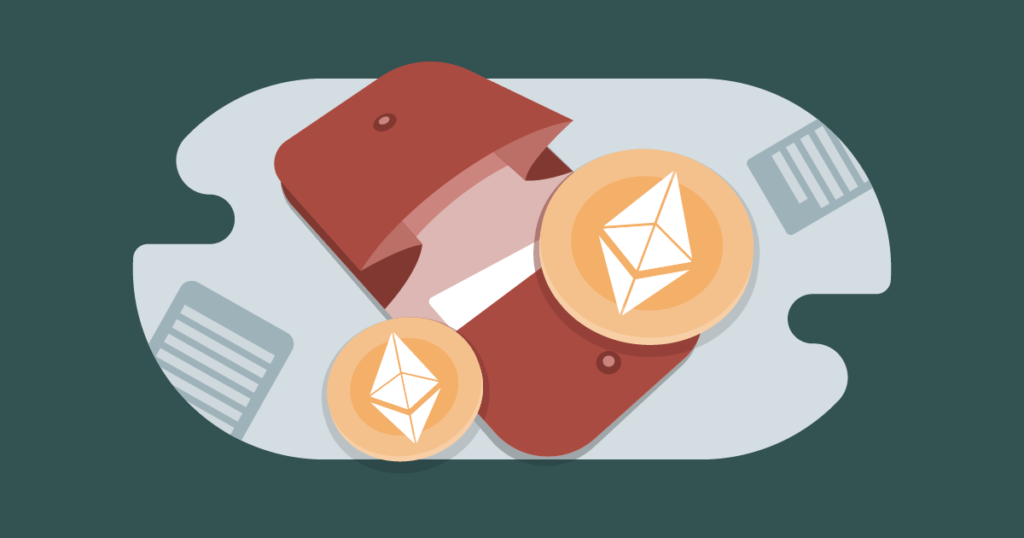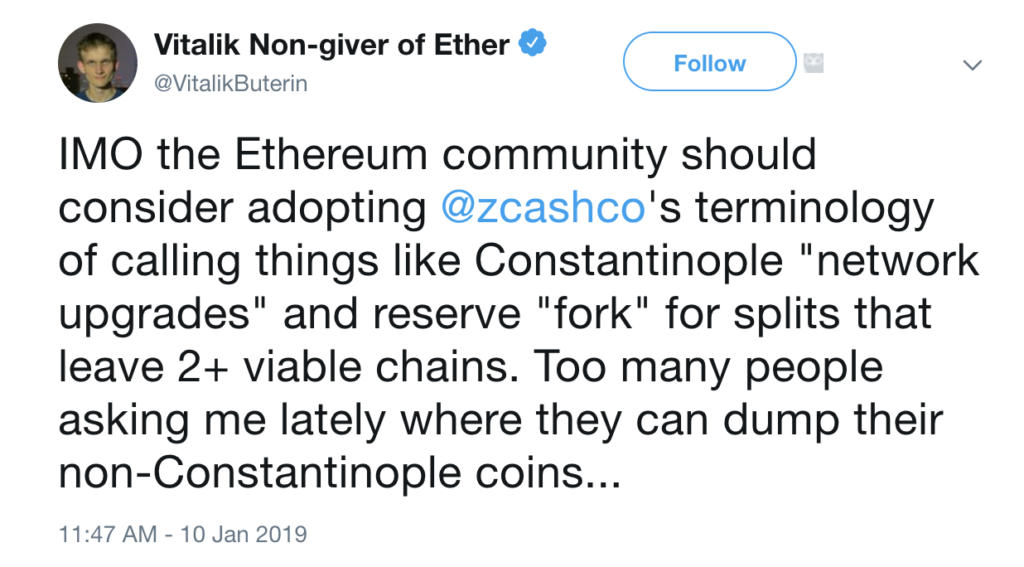Ethereum’s Constantinople Upgrade — Here’s What You Need to Know
After Initial Delays, the Next Ethereum Hard Fork is Scheduled for block today, February 28th, 2019. We outline what happens next for ETH holders.

Image courtesy BeatingBetting via Flickr
A big update is coming to the Ethereum network today known as Constantinople.
Though the initial rollout has been delayed twice now due to vulnerability concerns, Ethereum developers are now confident the network is prepared for the newest update. Currently, the hard fork is scheduled to occur at block 7,280,000 which is expected to take place on today, February 28th. But is this a “hard fork”? What are the changes happening? And is there anything I need to do as an Ether (ETH) holder to ensure my coins are safe? Let’s talk about all of that and more as we break down everything you need to know about Ethereum’s latest upgrade.
“Hard Fork”
The term “hard fork” often elicits a negative response by many in the cryptosphere. Thoughts of contentious debates, currency splits, and big changes come to mind where enthusiasts have to decide which currency and chain they’d like to support in the future. Hard forks in the past that many are familiar with include the DAO hack and split between Ethereum classic (ETC) and Ethereum (ETH) as well as the Bitcoin (BTC) and Bitcoin Cash (BCH) fork.
However, not all hard forks are contentious and to the everyday crypto observer, some feel more like a soft fork — though they’re not.
What is a Hard Fork?
At its core, a hard fork is simply an update and change in protocol for the current blockchain that is not backwards-compatible. Depending on the circumstances of the hard fork, most users who haven’t updated to the latest version will realize they’re on the old chain and update to join the new one. When there are disagreements, and a hard fork is considered to be “contentious,” then the community can end up with a currency split and different coins.
But similar to previous non-contentious hard forks in the past like Homestead and Byzantium, Constantinople isn’t going to be splitting ETH or the Ethereum community. In fact, Vitalik Buterin has even discussed using different terminology to avoid newcomers and those less technically inclined in the industry.

Source: http://twitter.com/VitalikButerin/status/1083450179347394560
What’s Changing?
With the Ethereum update, there are five Ethereum Improvement Proposals, or “EIPs,” set to be implemented.
EIP 145 introduces bitwise shifting for the Ethereum Virtual Machine (EVM). This change is expected to make the execution of shifts in smart contracts cheaper by processing information more efficiently.
EIP 1052 looks to increase the speed and efficiency of smart contract verification by only requiring a smart contract to pull the hash of another contract to verify it. Previously, smart contracts needed to pull the entire code of another contract to verify.
EIP 1014 was made by the founder of Ethereum himself, Vitalik Buterin. 1014 introduces enabling state channels, a specific scaling solution for off-chain transactions by allowing interactions with addresses that don’t exist yet.
EIP 1283 known by its full name, “Net Gas Metering for SSTORE Without Dirty Maps,” reduces the cost of gas for the SSTORE operation.
EIP 1234 brings with it the most talked about changes to the Ethereum network with a reduction in block rewards from 3 ETH to 2 ETH as well as delaying the difficulty bomb for 12 months. This is where “the thirdening” comes from, and the change will effectively reduce the rate of inflation for ETH on the market as the block reward is decreased.
These 5 EIPs are the actual updates that will be happening to the Ethereum network during the hard fork, but what does that mean for the average ETH holder?
What it Means For Everyone Else
First and foremost, because this isn’t a contentious fork and there won’t be a currency split, ETH holders (and holders of any ERC-20 tokens) don’t need to do anything with their cryptocurrency.
In fact, even those storing ETH on major exchanges like Binance, Coinbase, OKEx, etc. can leave it in their exchange wallet during the fork (though storing cryptocurrencies on exchanges long-term is never recommended, see our article on Hardware Wallets for more on that). Most major exchanges have already prepared for the upcoming fork and are fully supporting the update to the Ethereum blockchain.
While miners will be updating to the latest blockchain, the only other thing ETH holders need to do is watch out for various scams and market movement. Because not everyone in the crypto space is tech-savvy, there are already phishing schemes being attempted. There’s news of a new “Ethereum Nova” airdrop that’s an attempt at getting users’ private keys.
Don’t share your keys with anyone or any website promising to give you free tokens via airdrop — be wary and sit tight.

Want to Know More About All the Awesome Stuff We Do?
- Click HERE for instant access to our 2019 Market Report. Explore what 30 thought-leaders from dozens of industry verticals had to say.
- We are advisors and consultants that work with blockchain companies and other transformational technology projects. If you’d like to connect with us on how we can help your company, please click HERE or send us an email at hello@decentranet.com.
- You can also reach out to inquire about any of our current clients or portfolio companies at hello@decentranet.com.
